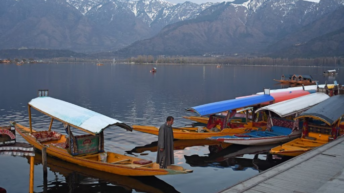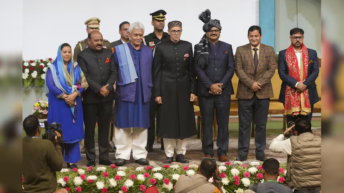|
Listen to article
Getting your Trinity Audio player ready...
|

The tortuous road to peace in Afghanistan is further blocked by the conflicting interests of the stakeholders.
Keywords: Afghanistan Peace Process | USA | Taliban | Doha Agreement | Pakistan | Troop withdrawal | Terror Attacks | Politics & Elections in Afghanistan
The global attention on the Coronavirus, the US-China disputes, and the US Presidential elections has meant that the relative failure of the Afghan peace process rarely gets reflected in the mainstream media. However, it does seem that there may be some headway with the Afghan government having released over 4900 of the 5000 Taliban prisoners as stipulated in the US-Taliban agreement signed in Doha earlier this year. In fact, these prisoners were to be released by March 10, after which the intra-Afghan negotiations were to begin.
Doha has no reference to the Government of Afghanistan, and the US treated the Taliban as a sovereign, though in the text it denied doing so.
Concerns about the periodic high-impact violence in Afghanistan are understandable but they mostly reflect unreasonable expectations, particularly about the scope of the Doha Agreement. This was not meant to be a peace deal but one which would lead to a peace agreement. Doha has no reference to the Government of Afghanistan, and the US treated the Taliban as a sovereign, though in the text it denied doing so. Semantics aside, the US agreed to scale down and withdraw its presence in Afghanistan, and in turn, the Taliban committed itself to intra-Afghan negotiation with all sides, and also committed to ‘not allow any of its members, other individuals or groups, including al-Qa’ida, to use the soil of Afghanistan to threaten the security of the United States and its allies.’
The US agreed to scale down and withdraw its presence in Afghanistan, and in turn, the Taliban committed itself to intra-Afghan negotiation with all sides, and also committed to ‘not allow any of its members, other individuals or groups, including al-Qa’ida, to use the soil of Afghanistan to threaten the security of the United States and its allies
The Government of Afghanistan justifiably felt left out since the Doha Agreement did not even acknowledge it as a relevant party, leave alone the main interlocutor in the anticipated intra-Afghan negotiations. Unfortunately, it is largely to blame for this state of affairs. Despite significant political and financial support, it has not been able to establish its credibility in terms of performing essential State functions. Rampant corruption and extortion by officeholders have engendered a culture of impunity with victims having no recourse to justice. This is particularly so due to the involvement of State functionaries in crimes such as drugs trade and kidnapping. The democratic underpinning of the post-Taliban system has been hollowed by the inability to hold even reasonably fair elections, with each successive exercise being less credible than the previous one. The 2019 Presidential elections were a pure farce, ultimately being settled by a compromise between the two competitors rather than by the Election Commission.
The democratic underpinning of the post-Taliban system has been hollowed by the inability to hold even reasonably fair elections, with each successive exercise being less credible than the previous one.
The Afghan Army is generally seen as competent but is seen plagued by high rates of desertions, and while capable of holding operations, is unlikely to be able to militarily preserve the writ of the government for long by itself. In any case, the Government of Afghanistan is in no position to financially maintain its security forces, or fund most of its development expenditures.
The net effect of these developments was that beginning with President Obama’s assumption of office in 2009, the USA has consistently tried to by-pass the Government of Afghanistan, to reach an agreement directly with the Taliban and get out of Afghanistan.
The net effect of these developments was that beginning with President Obama’s assumption of office in 2009, the USA has consistently tried to by-pass the Government of Afghanistan, to reach an agreement directly with the Taliban and get out of Afghanistan. Many analysts failed to grasp this point though the USA never hid its intentions through its actions marked by reduced interaction at the President’s level and the open attempts to get a deal, allowing the British to take the lead with the Pakistani army to get the Taliban on board. Clearly, it was never about any Afghan-led, Afghan-owned peace process.
Post-Doha, an empowered Ghani resisted releasing Taliban prisoners as required by the US-Taliban agreement, arguing that his government was not a party to the agreement and that it was the government which held the prisoners, not the US. Yet, the physical survival of his government depended on the USA and the US representative at the peace talks, Zalmay Khalilzad kept Ghani informed about developments and even showed him the agreement before it was signed. Slowly, Ghani has yielded and the stage seems set for talks. Former Chief Executive and Ghani’s rival in the last two elections, Abdullah Abdullah has been charged with the responsibility for the peace process.
Pakistan’s role is very important, but while publicly committed to the peace process, it has been the beneficiary of an unstable and unsettled Afghanistan.
Though the Taliban deny it, both the UN and the US State Department have stated that the former still shelter Al-Qaeda and other international terrorists. The Taliban have been sorting out their own internal affairs, and the son of their charismatic founder, Mullah Omar, has been made the head of the military operations. They have also slightly modified the composition of their negotiating team, seemingly to distance themselves from Pakistan. Pakistan’s role is very important, but while publicly committed to the peace process, it has been the beneficiary of an unstable and unsettled Afghanistan. Were the USA to be disengaged completely from Afghanistan, would Pakistan be able to obtain the largesse from IMF etc., and the long rope on terrorism financing that it has been given?
Were the USA to be disengaged completely from Afghanistan, would Pakistan be able to obtain the largesse from IMF etc., and the long rope on terrorism financing that it has been given?
Though high profile terror attacks in Afghanistan seem to have increased, the overall violence levels are at their lowest level since 2012, a 13% drop for the figures for the same period in 2019, and around 40% lower than figures from 2016-2018. The UN’s six-monthly report documented 3458 civilian casualties (1282 dead, 2176 injured), and noted that the drop was due to lower casualties attributed to international military forces and to IS-K (Islamic State Khorasan). Taliban were held accountable for 43% of all casualties, and the percentage attributed to the Afghan military forces was 23% or an increase of 9%, and that of its Air Force was up three times from the same period last year. Government forces were responsible for most deaths of children.
The format of the intra-Afghan negotiations is not clear, for at Doha, the Taliban committed to talk with all Afghan sides, the government, presumably being only one of them. Till now, the Taliban have met different representatives of the Afghan political system, including from the government, at different peace conferences, but the latter were accepted in an individual capacity only. The road ahead for Afghanistan promises to be long and hard.






Add comment